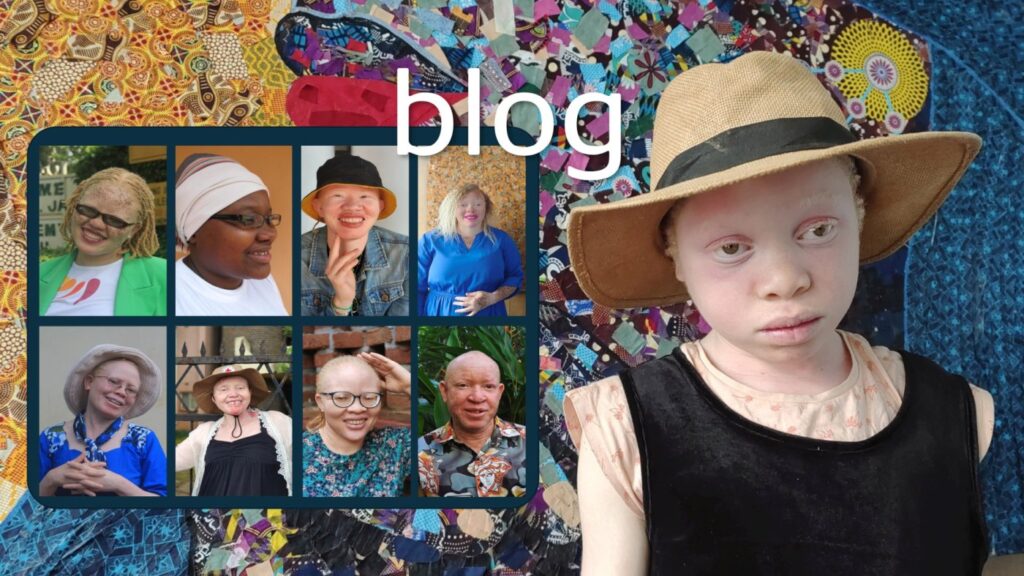Today, 13-06-2024 is International Albinism Awareness Day.
What do you know about Albinism? And what are the challenges that people with albinism have to deal with? Keep reading to learn more.
So, what is Albinism? Albinism is a rare, non-contagious, genetically inherited difference present at birth. In almost all types of albinism, both parents must carry the gene for it to be passed on, even if they do not have albinism themselves. The condition is found in both sexes regardless of ethnicity and in all countries of the world. Albinism results in a lack of pigmentation (melanin) in the hair, skin, and eyes, causing vulnerability to the sun and bright light. As a result, almost all people with albinism are visually impaired and are prone to developing skin cancer. No cure for the absence of melanin is central to albinism.
While numbers vary, it is estimated that in North America and Europe 1 in every 17,000 to 20,000 people have some form of albinism. The condition is much more prevalent in sub-Saharan Africa, with estimates of 1 in 1,400 people being affected in Tanzania and prevalence as high as 1 in 1,000 reported for select populations in Zimbabwe and other specific ethnic groups in Southern Africa.
Health challenges of people living with albinism The lack of melanin means persons with albinism are highly vulnerable to developing skin cancer. In some countries, a majority of persons with albinism die from skin cancer between 30 and 40 years of age. Skin cancer is highly preventable when persons with albinism enjoy their right to health. This includes access to regular health checks, sunscreen, sunglasses, and sun-protective clothing. In a significant number of countries, these life-saving means are unavailable or inaccessible to them. Consequently, in the realm of development measures, persons with albinism have been and are among those “left furthest behind.” Therefore, they ought to be targeted for human rights interventions in the manner envisioned by the Sustainable Development Goals.
Due to a lack of melanin in the skin and eyes, persons with albinism often have permanent visual impairment. They also face discrimination due to their skin colour; as such, they are often subject to multiple and intersecting discrimination on the grounds of both disability and colour. Discrimination and threats: The worst expression of discrimination against persons with albinism is their dehumanization, which lays the foundation for horrifying physical attacks against them. Because some believe that they are magical beings or ghosts, they mutilate or even kill them, so their body parts can be used for witchcraft rituals. (This is prevalent in East Africa) In other areas in Africa, it is believed that if a man sleeps with a woman who has Albinism, he will be cured, resulting in rape. All this must come to an end! Today we honor everyone who is working to achieve this goal, and especially the kanthari changemakers who have albinism and who are standing up to advocate for the rights of their peers.
Judith Jandi – Siogope Resource Centre – Kenya
Jane Waithera – Positive Exposure Kenya – Kenya
Lucy Karimi – Mountain View Center – Kenya
Sherleen Tunai – Ana Antami – Kenya
Mercy Maunganidze – Zimas – Zimbabwe
Gwen Lisa Mushonga – Alive Albinism Initiative – Zimbabwe
Abel Mvendaga – Caren – Nigeria
Ifeoluwa Faniran – iretiola – Nigeria
We wish them continued success in spreading further awareness and advocating for a better and more just tomorrow for people with Albinism.
Thank you for reposting and sharing this post so it creates further awareness.
source: https://www.un.org/en/observances/albinism-day
#InternationalAlbinismAwarenessDay #AlbinismAwareness #SupportAlbinism #AlbinismAdvocacy #EndDiscrimination #HumanRights #AlbinismRights #StopAlbinismViolence #HealthForAll #AlbinismInclusion



